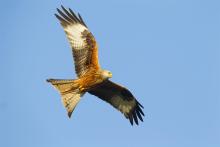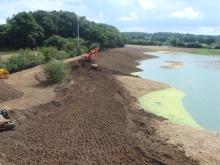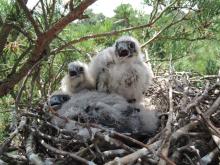A new nature reserve is being created at a former Cemex quarry and landfill site in Rugby, County Warwickshire, England.
The reserve is being created solely for nature to allow them to live and breed in peace and tranquility. An external viewing point is being provided for the local community to watch and enjoy the wildlife from a distance.
The latest phase is the construction, in the lake, of three floating islands using a buoyancy sub-frame, totaling just under 1,000m². The islands consists of 106 frames made from synthetic and natural materials to produce a fertile yet durable platform for flora and fauna to flourish.
The islands are anchored by Cemex concrete blocks and synthetic ropes which can be adjusted as the lake naturally fills with rainwater. It is hoped that the islands will encourage birds, amphibians and small mammals such as water voles to make the islands their home.
Work started at the site with the removal of over 263,000tonnes of material, which was transported to the old Southam Quarry, just over 16km away. The material was instrumental in completing the final restoration of an eight-acre engineered landfill cell at Southam, which has now been capped and seeded.
As the Parkfield Road site greens up with sown grasses and flowers having taken hold over the summer it is hoped that species such as the dingy skipper and grizzled skipper butterflies and ground nesting bees will be attracted to the area.
The steep faces of the quarry have been retained which means the area could offer a home to Peregrine falcons and kestrels.
The planning process for the reserve identified that the site could be a suitable habitat for the British White Clawed Crayfish, a species that is under threat from the invasive American Signal crayfish. In recent surveys none has been detected, but the creation of the new nature reserve will provide a viable habitat.
The final job at the site will be the installation of some interpretation boards on the perimeter which will help the local community learn about the wildlife on the site.







